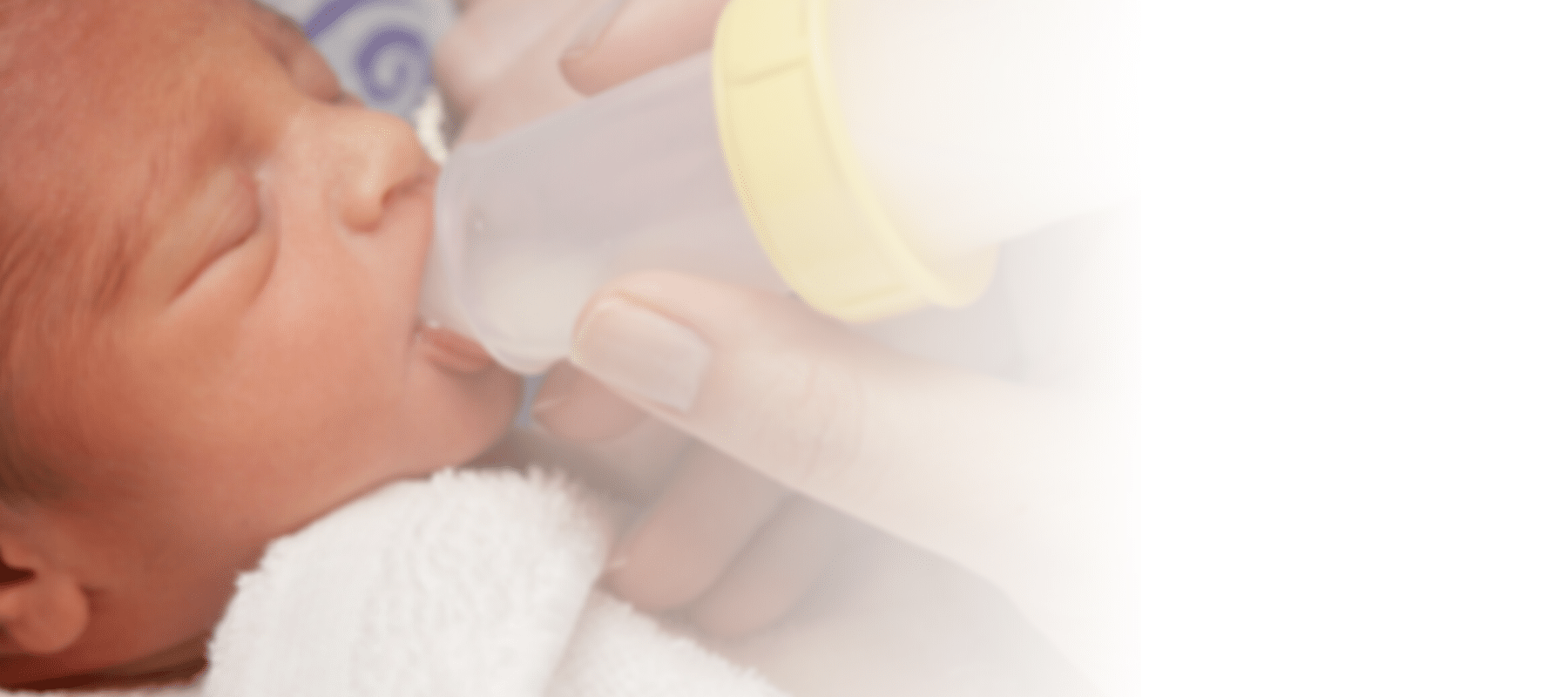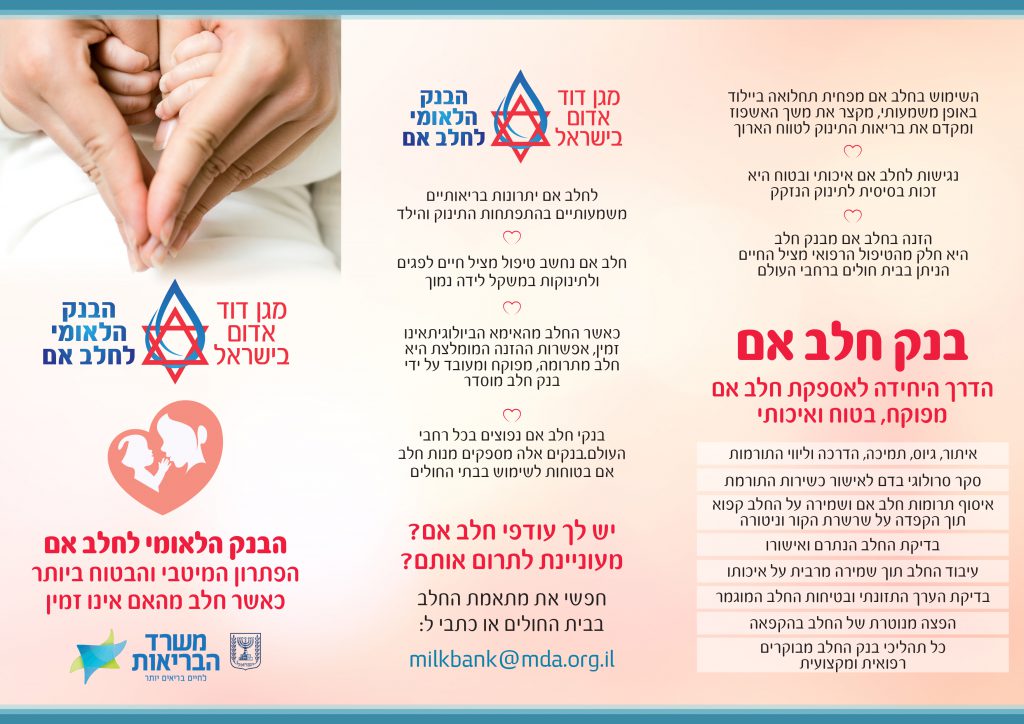
The mother's body knows how to produce milk according to the gestational age, so only mothers can provide the perfect food for the baby's needs. The multiple benefits of breast milk include improved immune protection, appropriate nutritional composition and stimulation for optimal bowel function, while providing a psychological-developmental advantage to the mother and baby. Breast milk is also rich in factors that help protect against infections. Most of the virtues of breast milk are maintained, even if it is only sufficient for part of the diet.
Breastfeeding reduces the risk of NEC and sepsis (a life-threatening condition caused by an overreaction of the body's immune system to infection) and thus can significantly shorten the length of hospitalization. Since the sucking ability matures only towards the 34th week of pregnancy, most small and immature premature babies need to be fed by tube through a gastric tube. As they mature, the premature babies are gradually taught to suckle. It is usually easier for premature babies to suck from a bottle nipple, and only later do they gradually learn to suck from the breast. Therefore, the form of feeding the premature infant requires pumping breast milk and ensuring its proper storage until the time of feeding.

If your premature baby is still small and in the incubator, it may be a long time before he attaches to the nipple and suckles directly from it. Until that happy moment arrives, you will have to be connected to an annoying, cool, plastic and sometimes noisy breast pump. This robotic replacement, called a breast pump, is going to be next to you every day at least eight times a day, every three hours. In any case, you should not open intervals of more than 4 hours between pumping during the day and 5-6 hours at night. This is not an easy task - especially for mothers of premature babies whose hospitalization is going to be long. What can make this task easier for you is the knowledge that the milk given to your premature baby is essential for his health and the best thing you can give him as a mother. We strongly recommend that you consult with the lactation consultant of the maternity department at the hospital or at the maternity ward regarding the method of pumping, its frequency, etc.
In recent years, the LAH association has been promoting the establishment of a breast milk bank in Israel. In August 2020, the bank was opened by MDA. The breast milk bank enables the donation and collection of breast milk donated by nursing mothers, who are not family members of the baby receiving the milk. This is a mechanism which connects women who want to donate breast milk and operates according to the procedures detailed inThe Ministry of Health returns and refer to the requirements that the donor is asked to meet, the method of collection and storage and eligibility to receive a breast milk donation.
Milk donors are supposed to meet special conditions that guarantee their fitness to act as milk donors and the safety of the pumped milk. The minimum eligibility conditions include a column on conditions for donating blood, and on top of that are added conditions that ensure the long-term eligibility of the donating mother and the safety of the milk pumped by the mother.
The donated milk goes a long way until it reaches the baby in need, so it is important that it is pumped and stored under very strict conditions. These rules do not bind you when you pump for your child. Equally, you may discover that there are living conditions that prevent you from being a milk donor.
Of course, this does not indicate that you cannot breastfeed your child or that "your milk is not good", in the same way that healthy and vital people sometimes cannot donate blood, so do milk donors. In any case of doubt about your compliance with the conditions for eligibility as a milk donor, you are welcome to contact us at: milkbank@mda.org.il
The recommended target population for receiving breast milk:
in first priority
Second priority
Essential factors for eligibility as a milk donor:
to watch bThe Ministry of Health returns Regarding the breast milk bank
The Lehab Association - For Premature Infants in Israel (AR) is a nationwide association established by parents of premature infants and former premature infants for the purpose of promoting and improving the condition of premature infants in Israel, their families, and premature infants in Israel and to reduce the number of premature infants born each year and increase awareness of the dangers of miscarriages.
Enter the group Our silent WhatsApp
The Lehab newsletter comes out every two weeks and contains updates and news from the world of premature babies.